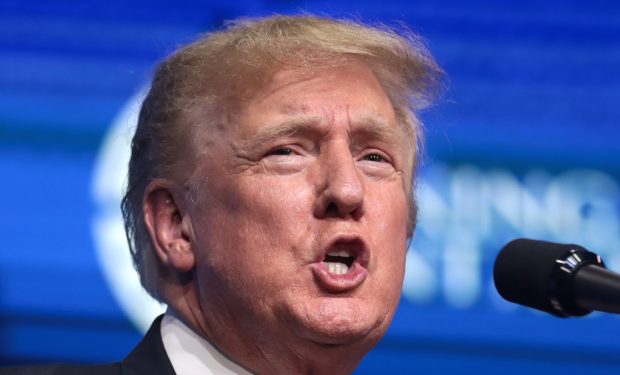University of Texas Law Professor Lee Kovarsky is an expert on habeas corpus and capital punishment, areas where Kovarsky continues to litigate cases with a particular focus on representing death row inmates. In 2017, Kovarsky argued a capital punishment case (Ayestas v. Davis) before the United States Supreme Court, in which the Court rendered a unanimous decision for his client.
Kovarsky just released a 28-tweet primer on former President (and current criminal defendant) Donald Trump‘s big ask for immunity in the federal election subversion case against him. The next step here, in a path that will almost surely lead to the Supreme Court, is a consideration by the DC Circuit Court (CADC). So Kovarsky’s guide includes both how the CADC will likely view the brief and also how SCOTUS may eventually perceive it.
I READ THE TRUMP IMMUNITY BRIEF SO YOU DON’T HAVE TO!
— Lee Kovarsky (@lee_kovarsky) December 24, 2023
Sometimes the client leaves the lawyer with nothing besides bad arguments, and that’s mostly the case here.
1/
Kovarsky begins with a friendly public service announcement, revealing he has “read the brief so you don’t have to” and then, tellingly, follows by saying: “Sometimes the client leaves the lawyer with nothing besides bad arguments, and that’s mostly the case here.”
Kovarsky writes that concerning “whether DJT has ‘presidential immunity’ from criminal prosecution” in the DC case, “he’ll lose that before the DC Circuit (“CADC”) – and probably before SCOTUS.”
Reminding that presently “immunity” only applies to civil, not criminal cases, Kovarsky predicts Trump won’t be able to change that categorization, and even if he did he’ll likely fail to convince a court — especially the CADC and probably SCOTUS — that his conduct was “within the ‘outer perimeter’ of his POTUS duties.”
Second, he must meet the pertinent standard for the immunity, if indeed it applies – that the charged conduct is within the “outer perimeter” of official POTUS responsibilities.
— Lee Kovarsky (@lee_kovarsky) December 24, 2023
5/
Kovarsky notes that that Judge William Pryor — “one of the most conservative circuit judges in the country” — dealt a blow to the argument that Trump’s post-election conduct was in pursuit of “election integrity” when Pryor denied former Trump Chief of Staff Mark Meadows‘s motion to remove his election interference case to federal court from Georgia.
Writing for a 3-judge panel on the 11th Circuit Court of Appeals, Pryor determined that, presumably like Trump’s, Meadows “participation in an alleged conspiracy to overturn a presidential election was not related to his official duties.”
These arguments are the arguments that one of America’s most conservative circuit judges, CJ Pryor (CA11), flamed last week – arguments about how DJT was actually pursuing election integrity rather than his private interests as a candidate.
— Lee Kovarsky (@lee_kovarsky) December 24, 2023
16/
Backing up his assertion that some clients don’t give their lawyers much to work with, Kovarsky adds some colorful descriptions of the legal stretching Trump’s attorneys attempt, at one point denigrating the Trump team’s positions as “the ‘come on dude’ arguments.”
Kovarsky also writes, considering an argument that Trump remained immune despite the expiration of his term, that “whether presidential immunity extends to after-term prosecution, is at least arguable. The issue hasn’t been formally decided, but Nixon v. Fitzgerald (1974) is the leading case and it’s pretty bad for DJT.”
